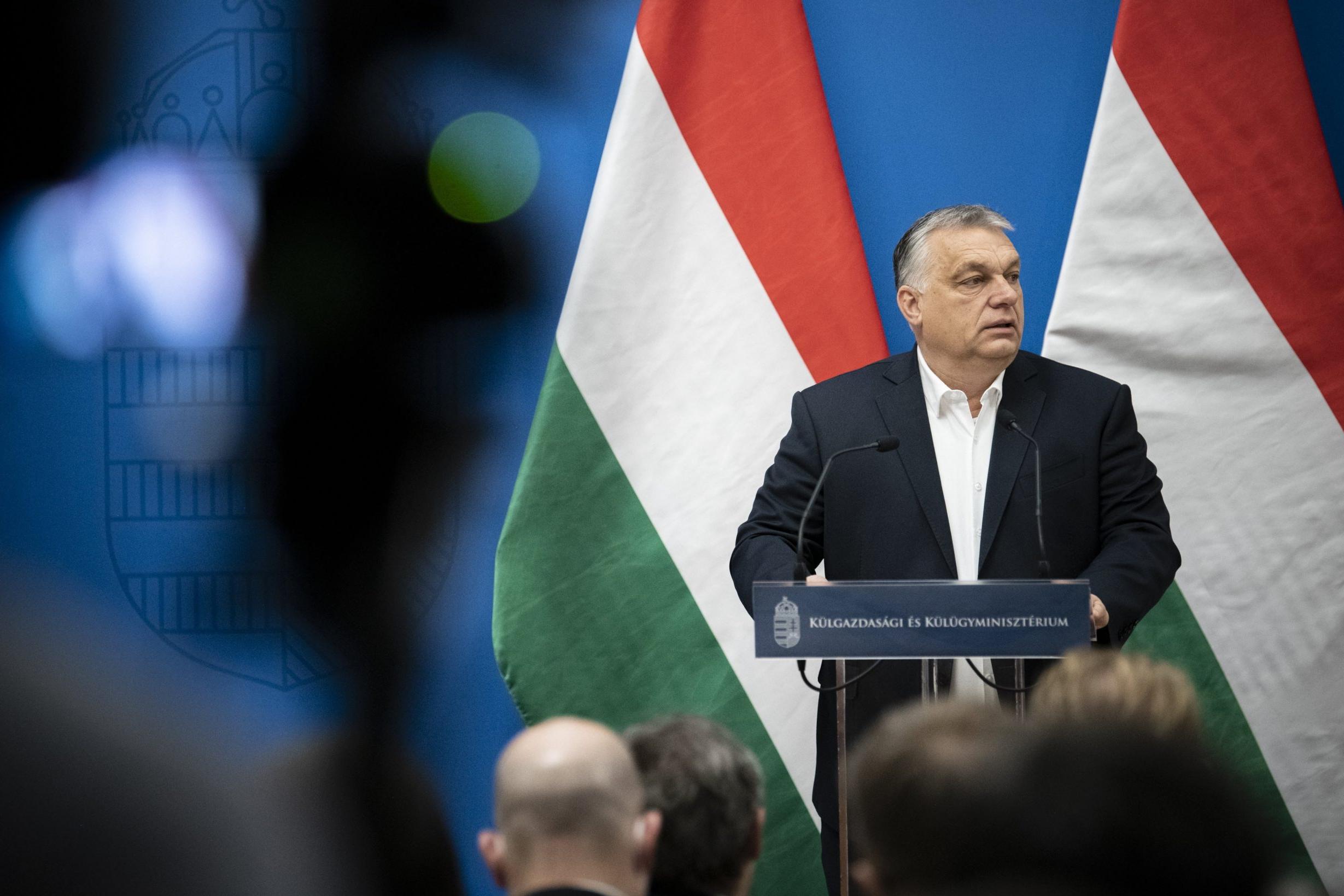Keresés: %s
Keresés: %s
Council meeting of the employment and social ministers, 6 December 2021
At the Council meeting of the employment and social ministers held in Brussels on 6 December 2021 the Member States reached a general approach regarding the draft Directive on a framework for adequate minimum wages in the European Union and also about the draft Directive to strengthen the application of the principle of equal pay for equal work, or work of equal value between men and women through pay transparency and enforcement mechanisms. The Council gave mandates to the Presidency to enter into the interinstitutional negotiations with respect to the draft Directives. This, in case of the draft Directive on a framework for adequate minimum wages in the European Union will commence before the end of this year.
The Council adopted council conclusion on sustainable work over the life course also on the impact of artificial intelligence on gender equality in the labour market.
The European Commission presented the autumn package of the European Semester and both the outgoing Slovenian and the incoming French Presidencies presented their achievements and their work program
ECOFIN meeting - 7 December 2021
At the ECOFIN meeting the Council reached agreement on a proposal to amend the directive as regards rates of value added tax (VAT). The new rules ensure member states are treated equally and give them more flexibility to apply reduced and zero VAT rates. While Hungary fully supports the agreement on the new VAT rules, we could not go along with the new mandate of the Code of Conduct group as this could open a backdoor to undesirable tax harmonization. We think it is crucial to preserve the peer review feature of the group, where only the Member States could legitimately exercise political power and the Commission should act only as a facilitator of the discussions among Member States.
At the meeting, the Commission presented the Capital Markets Union Package that aims to better connect EU companies with investors and improve their access to funding, as well as broaden investment opportunities for retail investors and better integrate capital markets. Hungary welcomes the proposal and looks forward to the technical discussions.
Transport, Telecommunications and Energy Council (Transport), 9 December 2021
The TTE Council of Transport Ministers took place on 9 December 2021 in Brussels. On behalf of Hungary, Mr László Mosóczi Minister of state for transport, participated in the meeting.
Ministers had their first formal discussion on each of the three Fit for 55 transport proposals to guide further work on these files.
These proposals will play a significant role in the EU’s efforts to cut its transport emissions by 90%, a prerequisite for meeting the 2050 climate neutrality.
The Council took note of progress and held a policy debate on a proposal aimed at ensuring a level playing field for sustainable air transport (ReFuelEU Aviation) and on a proposal to promote the use of renewable and low-carbon fuels in maritime transport (FuelEU Maritime), as well as, on a draft regulation on the deployment of alternative fuels infrastructure (AFIR).
The Presidency briefed ministers on the state of play of current legislative proposals. In addition, the Commission updated ministers on the issue of Passenger Locator Forms and transport workers.
Justice and Home Affairs Council, Brussels – 9th of December 2021
The Ministers of Interior met on 9th December 2021 in Brussels during the Justice and Home Affairs Council organized by the Slovenian Presidency, at which Hungary was represented by Deputy Minister of Interior Mr Károly Kontrát. Among others the ministers discussed the issues of countering hybrid threats and migratory challenges, the prevention of the infiltration by organised crime in the EU recovery funds, the cooperation between competent authorities dealing with counter-terrorism, the sustainable solutions in the Pact on Migration and Asylum as well as the conclusions on the fulfilment of the necessary conditions for the full application of the Schengen acquis in Croatia.
In his speech Deputy Minister Mr. Károly Kontrát emphasized that Hungary is fully committed to the fight against hybrid threats affecting our external borders and in this regard the current EU legal framework needs to be adapted to reflect the realities, and Member States cannot be challenged for providing viable, yet proportionate, solutions at the external borders in order react to crises that threaten us all. At the same time Hungary cannot accept solutions that focus on reintroduction of internal border controls instead of maximizing the protection of the external borders, as the proper functioning of the Schengen Area is crucial. Hungary is fully committed to the enlargement of the area without internal border controls.
Reducing deforestation, contingency plan for ensuring food supply, unfair trading practices, crisis in the pig meat sector and CAP Strategic Plans were on the agenda of the December Agriculture and Fisheries Council
Agriculture ministers adopted council conclusions on the contingency plan for food supply and food security. The conclusions acknowledged the overall resilience of the EU food supply chain, identified existing shortcomings, and put forward actions to improve preparedness at EU level.
The legislative proposal on reducing the risk of deforestation and forest degradation were broadly welcomed by the ministers, who highlighted the importance of deforestation-free supply chains.
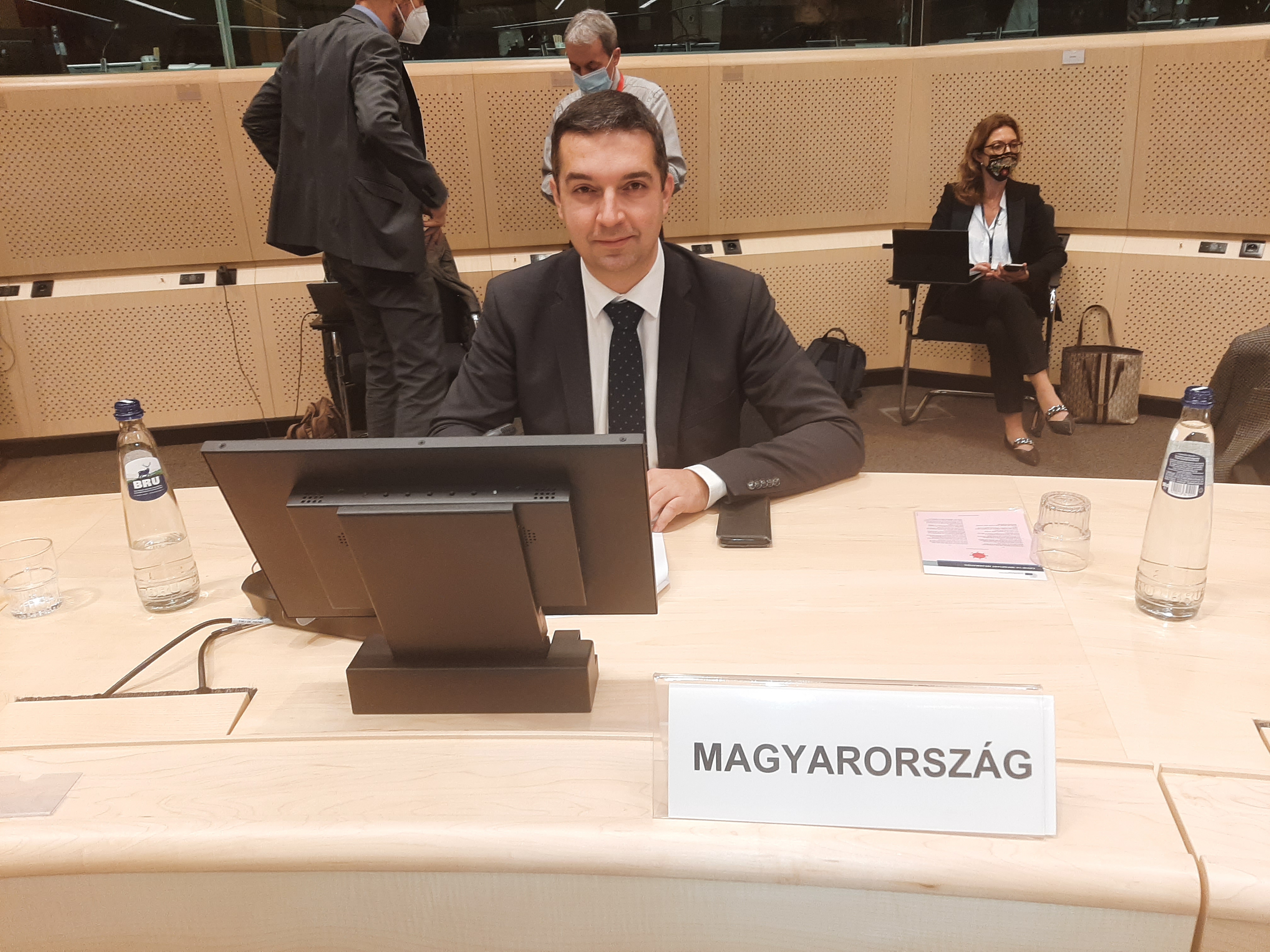
Tackling unfair trading practices in the food supply chain was considered as a key initiative to increase market transparency and strengthen the position of primary producers and farmers in the supply chain.
As regards the ongoing critical situation in the pig meat sector, the vast majority of Member States – including Hungary –urged the Commission again to propose exceptional market measures to handle the situation. The Commission still did not consider the call necessary.
As regards the submission of the CAP strategic plans, Zsolt Feldman, State Secretary for Agriculture and Rural Development, emphasized that the secondary legislation cannot go beyond the basic acts and only legally binding requirements can be demanded from Member States. Mr Feldman highlighted that the timely adoption and entry into force of the related secondary legislations are essential for the submission of the national plans by 1st January 2022.
Hungary presented the joint declaration, which was signed on the occasion of the five-year anniversary of the BIOEAST Initiative.
General Affairs Council, 14 December 2021, Brussels
At the General Affairs Council meeting on the 14th of December 2021, Hungary was represented by Minister Judit Varga and Minister Péter Szijjártó. The Council was chaired by Gašper Dovžan, Slovenian Secretary of State for EU Affairs, and the Commission was represented by Vice-Presidents Dubravka Šuica and Věra Jourová, and Commissioner Olivér Várhelyi.
Preparation of the European Council on 16 December 2021
The General Affairs Council held an exchange of views about the preparation of the upcoming European Council meeting on the 16th of December based on the Draft Conclusions. The Ministers focused the discussion on the Covid-19 pandemic, energy prices, crisis management and resilience, security and defence, migration and external relations.
Enlargement and the stabilisation and association process
The Ministers approved the Council conclusions on the enlargement and stabilisation and association process. They also took stock of the progress made in each of the candidates and potential candidate countries, set out guidelines on reform priorities, and reaffirmed the Council’s commitment to enlargement. In the margins of the General Affairs Council, Intergovernmental Conferences with Montenegro and Serbia took place on 13 and 14 December with opening a new negotiating cluster with Serbia.
Conference on the Future of Europe
The presidency informed ministers of the state of play as regards the Conference on the Future of Europe, pointing to the challenges posed by the current epidemiological situation. The focus is now fully on substance with the citizens delivering their first recommendations (https://futureu.europa.eu/assemblies/citizens-panels). The next plenary session of the Conference is expected to take place in January (https://futureu.europa.eu/pages/plenary). All EU citizens can contribute to shaping their own future and that of Europe as a whole on the digital platform (https://futureu.europa.eu/?locale=en).
Rule of law in Poland
The Council held state of play on the rule of law in Poland under the Article 7 (1) TEU procedure, during which the European Commission reported on the developments following the last hearing in June 2021 concerning the rule of law situation in Poland, on which the Polish side presented its position.
Rule of law in Hungary
The Council held a state of play on the rule of law in Hungary under the Article 7 (1) TEU procedure, during which the European Commission, reported on the developments following the last hearing in June 2021 concerning the rule of law situation in Hungary, to which Minister Judit Varga presented the Hungarian position.
Fight against antisemitism
At the initiative of Hungary, ministers exchanged views on the fight against antisemitism on the basis of the report by the Fundamental Rights Agency (FRA) - Antisemitism: overview of antisemitic incidents in the European Union 2010-2020 -, presented by Michael O’Flaherty, Director of FRA. All Member States who took the floor underlined the importance of the fight against antisemitism and the need to make further efforts.
Legislative priorities for 2022
The Council approved the text of the Joint Declaration of the European Parliament, the Council of the European Union and the European Commission on the EU Legislative Priorities for 2022, which will be signed by the Presidents of the EU institutions at the margin of the meeting of the European Council on 16 December 2021. Hungary and Poland did not agree to the approval of the Joint Declaration in view of its findings on the rule of law and the Recovery and Resilience Facility. Hungary and Poland recalled that the value of the rule of law should not be used to exert political pressure in ways that do not comply with the basic requirements of rule of law themselves. The application of existing instruments should duly respect the principle of equal treatment. These principles shall apply also to the use of the NextGenerationEU, and the Recovery and Resilience Facility and as regards the approval of the recovery and resilience plans of each Member State as well. Due to the politically motivated delay in the approval of their RRPs, it is evident that these conditions are not met currently, so the two Member States were not in a position to agree to the approval of the Joint Declaration.
European Semester 2022
The incoming French Presidency and the Commission gave an overview of the 2022 European Semester cycle, in which the most meaningful modification will be the late publication of the country reports.
Eighteen-month programme of the Council
Ministers endorsed the Council's eighteen-month programme, which is based on defending citizens' freedoms, fundamental European values and the rule of law; ensuring an effective boost to green and sustainable growth; building a climate-neutral and green Europe; and promoting Europe's interests and values in the world. France will hold the rotating presidency of the Council from January to June 2022, Czequia from July to December 2022 and Sweden from January to June 2023.
Environment Council (Brussels, 20 December 2021)
The Environment Council took place on 20 December 2021 in Brussels. On behalf of Hungary, Mr Attila Steiner Minister of State for the Development of the Circular Economy, Energy and Climate Policy, participated in the meeting.
The Ministers took note of the progress on the Fit for 55 package and exchanged their views on the dossiers. Many highlighted the socio-economic effects of the proposed extension of EU Emission Trading System to buildings and road transport, while some delegations showed their support of carbon pricing in these sectors. In relation to that, a number of delegations raised concerns, whether the proposed Social Climate Fund would be an appropriate tool to handle these effects. Hungary highlighted that given its impact on the citizens, Hungary cannot support the introduction of the new ETS system on building and road transport sector.
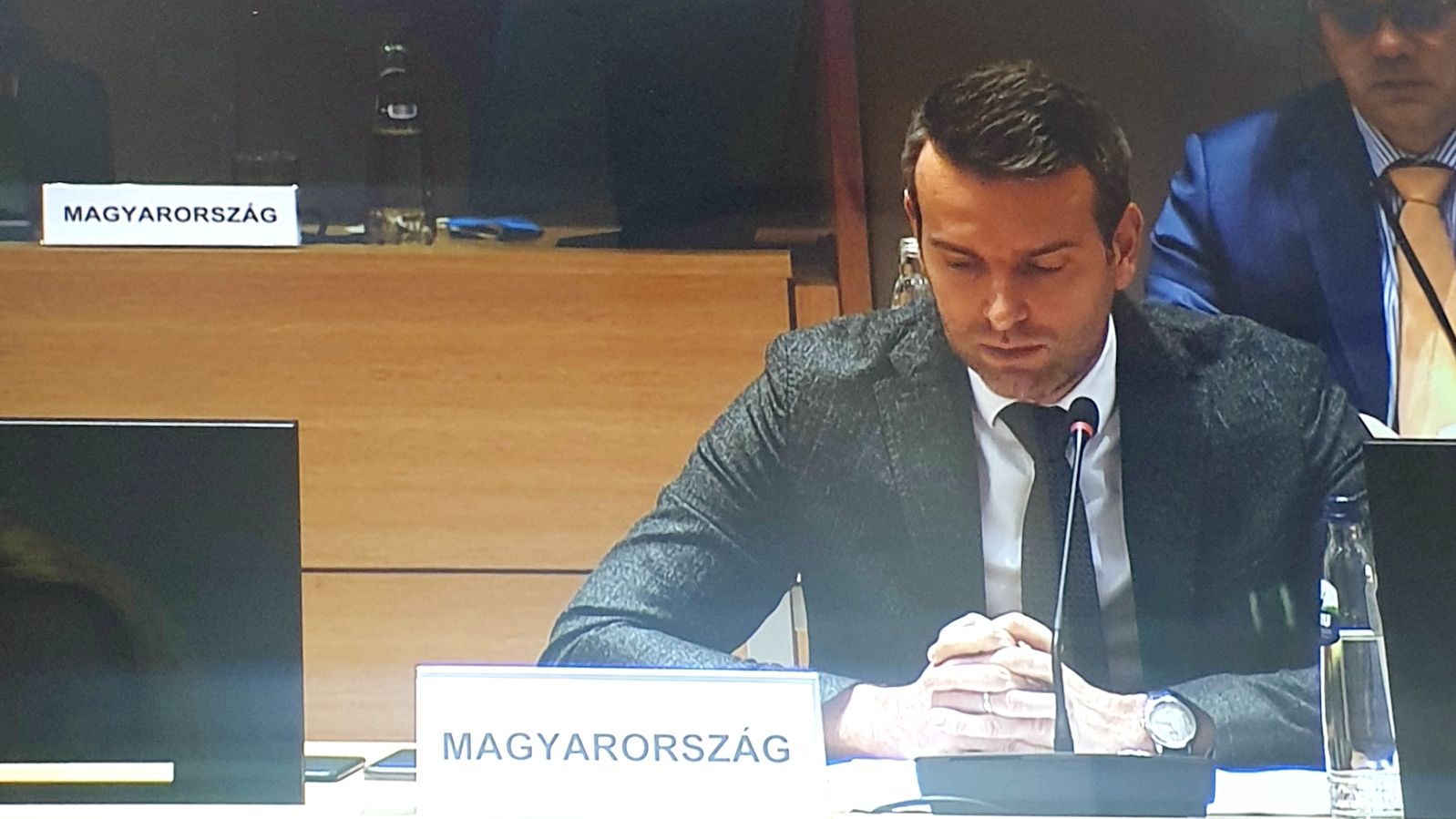
Under any other business points, the European Commission introduced the results of the Glasgow climate summit (COP26). Member States also exchanged their views on the consistency between the Mobility Package and the climate objectives.
The Ministers took note of progress on the regulation on Batteries aimed at promoting a circular economy and reducing environmental impacts of all stages of the battery life cycle.
Ministers held an exchange of views on the EU soil strategy for 2030. The strategy proposes a set of voluntary and legally binding measures for the protection, restoration and sustainable use of soils and proposes. It aims to increase the soil carbon in agricultural land, combat desertification, restore degraded land and soil, and ensure that by 2050, all soil ecosystems are in a healthy condition.
Concerning novel genomic techniques, Hungary supported the initiative of Austria, along with Cyprus, and Luxembourg on urging the Commission to respect the precautionary principle, and carry out a comprehensive impact assessment to understand the risks of the techniques.
The French Presidency work program, animal welfare, sustainable carbon cycles, trade-related agricultural issues and market situation were on the agenda of the January Agriculture and Fisheries Council
The French Presidency presented its priorities during the Agriculture and Fisheries Council, held on the 17th of January, in Brussels. Agriculture ministers exchanged views on the recent high-level conference ‘EU animal welfare today and tomorrow’, the communication on sustainable carbon cycles, trade-related agri issues and market situation, including the protracted crisis in the pigmeat sector.
Minister Julien Denormandie highlighted the reciprocity in environmental, health production standards and the carbon farming as key political priorities of the French Presidency. They will also support initiatives such as reduced pesticide use.
Agriculture ministers broadly supported the French presidency's efforts to promote the principle of reciprocity in agritrade. They emphasized that the imported products should comply with the EU's strict public health, environmental and animal welfare standards. Zsolt Feldman, State Secretary for Agriculture and Rural Development, drew attention to the coherence between EU agricultural policy and trade policy.
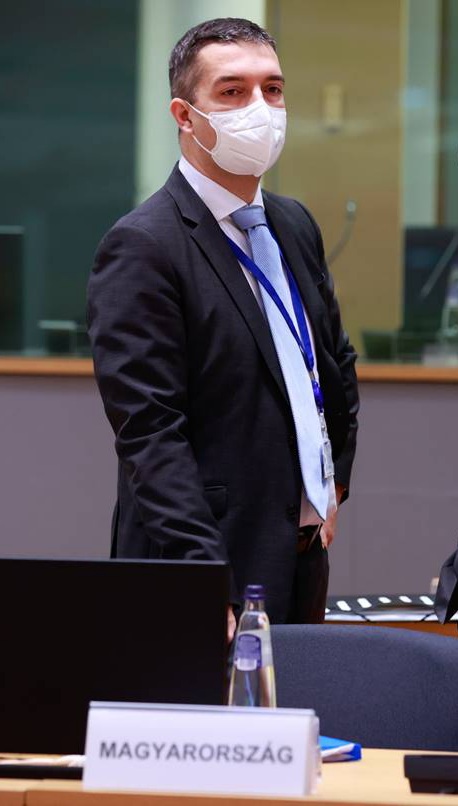
Based on the Commission’s view, the agri-food sector was performing well on the whole, but delegations highlighted several concerns, in particular the impact on agriculture of rising input, energy, fertilizer and feed costs. As regards the protracted crisis in the pig meat sector, the vast majority of Member States – including Hungary –urged the Commission again to propose exceptional market measures to handle the situation. The Commission still did not consider the call “timely” and necessary.
The communication on sustainable carbon cycles was broadly welcomed by the ministers, who agreed that the initiative may play an important role in the fight against climate change. Although many stressed the need to clarify several technical details and to avoid unnecessary red tape and increasing administrative burden.
As regards the recent high-level conference ‘EU animal welfare today and tomorrow’, several delegations - Hungary as well – called to pay attention to base future proposals on scientific evidence, taking into account socio-economic effects during the revision of existing EU animal welfare regulations.
Economic and Financial Affairs Council (Brussels, 18 January 2022)
Deputy Prime Minister Mihály Varga represented Hungary at the first ECOFIN meeting of the year on the 18th of January. The directive on the global minimum tax and the implementation of the Recovery and Resilience Facility were the two main issues discussed.
Regarding the global minimum tax the Minister explained that we are still analysing the proposal, especially how the taxation of multinational enterprise-group-members and large-scale purely domestic groups operating in Hungary will be affected. We consider the Presidency’s intention to finalise the Directive in the first semester and to start applying the rules as of 1 January 2023 is too ambitious. The complexity of the matter requires Member States to have sufficient time to analyse and implement a directive. Taxpayers also need sufficient time to be able to establish new compliance procedures and prepare for the application of the new rules. Furthermore the Minister recalled that Pillar 2 was agreed as part of a large-scale package, including also Pillar 1. Therefore both pillars should be treated together, and developments on Pillar 2 should be parallel to the implementation of Pillar 1.
Concerning the Recovery and Resilience Facility he reminded the Commission that at the time of the creation of the RRF our common understanding was that no one in the EU should be left behind in order to swiftly overcome the crisis. Now after 2 years we see that major EU economies with GDP/capita well above the EU average all received their share. Recovery is already underway in most countries. Meanwhile our well-designed programme has not yet been adopted. So far Hungary has been simply deprived from the dedicated allocation.This unfair treatment would contradict the concept of cohesion and the need for economic convergence. Therefore the minister urged the Commission to find an early solution to this problem.
General Affairs Council, 25 January 2022, Brussels
Within the framework of the Hungarian V4 Presidency, a V4 coordination meeting took place before the General Affairs Council meeting on the 25th of September 2022. At the V4 coordination meeting and the General Affairs Council meeting, Hungary was represented by Minister Judit Varga and Secretary of State Oszkár Ökrös. The Council was chaired by Clément Beaune, French Secretary of State for EU Affairs, and the Commission was represented by Vice-Presidents Dubravka Šuica and Maroš Šefčovič.
Priorities of the French Presidency
In a public session, the French presidency presented its priorities for the General Affairs Council for the next six months, including i.a. the protection and strengthening of EU values and the rule of law, the follow-up to the Conference on the Future of Europe and the EU-UK relations, the COVID-19 coordination as well as the promotion of the EU enlargement policy.
Several ministers took the floor and welcomed the presidency's priorities.
A number of delegations expressed their support for the Presidency’s objectives in relation to the protection and strengthening of the rule of law and fundamental rights, the strengthening of the dynamics of the Conference on the Future of Europe and the EU's crisis management and resilience, the reform of the Schengen area and the Pact on Asylum and Migration. They also emphasized the importance of strengthening the EU's defence and security policy capabilities and advancing the Strategic Compass and the EU's enlargement policy towards the Western Balkans. Some Member States also addressed issues related to the "Fit for 55" package, energy policy, economic governance reform, the social pillar as well as the coordination on the COVID-19 epidemic.
Minister Judit Varga pointed out that, although great tasks are on the horizon for the French Presidency, we are sure that by facilitating unity among Member States and acting as a real honest broker, Paris will be able to make progress on the dossiers most important for the future of the EU. Hungary will support France in every initiative that is based on the Treaties and serves the interest and the prosperity of the Union, the Member States, and its citizens.
‘Reinforcing democracy and integrity of elections’ legislative package
The General Affairs Council has had a public debate on the European Commission's Democracy Package. Most Member States welcomed the Commission's proposals and stressed the need to protect European democracy and the integrity of elections from external influences. Regarding the details of the proposal, the importance of the transparency of processes, respect for the principles of proportionality and subsidiarity, as well as the data protection in elections was emphasized. The detailed discussion of the proposals is ongoing at expert level. The French presidency plans to adopt a common Council approach to the package's proposals on the transparency of funding for European political parties and their foundations, as well as on political advertising, in March and April this year.
Conference on the Future of Europe
The Presidency briefed ministers on the state of play of the Conference on the Future of Europe, in particular with regard to the programmes to be held in February and March. He stressed the need to respect the contributions of EU citizens and to build on their recommendations. The Presidency also pointed out that the time has come to set priorities and develop the Council's position on the basis of the recommendations received. All EU citizens can continue to participate in shaping their own future and the future of Europe as a whole, including through the digital platform (https://futureu.europa.eu/?locale=en).
COVID-19: coordination at EU level
Following the debrief by Vice-President Maros Šefčovič, the General Affairs Council discussed the current issues of EU-level coordination against COVID-19, in particular concerning the spread of the omicron variant, vaccinations, the right to free movement and travel restrictions, and the EU's role in the international distribution of vaccines.
EU-UK relations
On the basis of Commission Vice President Maroš Šefčovič’s update the General Affairs Council discussed the state of play regarding the EU-UK relations. The Council primarily focused on the ongoing discussions with the United Kingdom regarding the implementation of the Withdrawal Agreement’s Protocol on Ireland/Northern Ireland. Member States unanimously supported the efforts to find pragmatic solutions, within the Protocol, to the genuine implementation problems identified by Northern Irish businesses and citizens. Member States reiterated their commitment to preserve unity among them. The Vice President debriefed the Council on persistent implementation problems in the area of citizens’ rights and fisheries, as well as on the state of play in the negotiations for an agreement with respect to Gibraltar.
Foreign Affairs Council in Brussels on January 24, 2022
Péter Szijjártó, minister of foreign affairs and trade represented Hungary at the meeting of the Foreign Affairs Concil in Brussels on January 24, 2022. The Council adopted conclusions on the European security situation, and also exchanged views on this topic with US secretary of state Anthony Blinken who joined the EU ministers via teleconferencing. The situation of Syria was also on the agenda. United Nations Special Envoy Geir Pedersen provided details on the current developments and his plans for a possible political solution. The Council also exchanged views on Libya and encouraged the holding of democratic elections in the country.
The press statements of Péter Szijjártó, Minister of Foreign Affairs and Trade are available at the About Hungary website:
https://abouthungary.hu/news-in-brief/fm-hungary-backs-ukraine-talks-to-resolve-conflict
2nd ALIPH donors' conference - Paris, 31 January 2022
The 2nd ALIPH (Alliance internationale pour la protection du patrimoine dans les zones en conflit) donors' conference took place in Paris on 31 January, in the framework of the French EU Presidency. ALIPH is an international consortium led by France, which aims to restore monuments and collections that have been destroyed in war zones and thus improve the living conditions of local communities and help them to stay in their communities.
Hungary was represented by Ambassador Bálint Ódor, Head of the Foreign and Security Policy Office of the Permanent Representation in Brussels. The conference was attended by more than 50 participants. At the event, Ambassador Bálint Ódor signed a Cooperation Agreement with ALIPH on behalf of the Hungary Helps Agency, under which the two organisations plan to implement joint projects in the future. The cooperation aims to contribute to building the resilience of local communities in conflict-affected areas and to promote peace and sustainable development in the Middle East through the protection of cultural heritage. Similarly to the projects implemented by Hungary Helps Agency ALIPH's activities contribute to reducing migratory pressures on Europe by providing practical, on-the-ground assistance to communities most in need.
The V4 research Task Force on Horizon Europe has started its activities
At the initiative of the National Research, Development and Innovation Office (NRDIO), the V4 Horizon Europe Task Force has started its work. The online meeting on 2 February was attended by twenty-nine experts from national ministries, research funding agencies, Permanent Representations and Brussels based RDI offices. The agenda of the first meeting included measures to improve the participation of each country in the Horizon Europe Research Framework Program.
The online meeting was opened by the Vice President of NRDIO, István Szabó, who presented some statistics about the participation of regional stakeholders in the previous research framework programme, Horizon 2020. This was followed by short presentations of V4 countries on national objectives and support measures linked to the new framework programme, Horizon Europe. After the presentations, participants had a lively discussion about good practice examples, common difficulties and possible solutions concerning participation. In the second half of the event the so-called widening part of Horizon Europe was discussed in more detail. The next meeting of the working group is planned by the end of March, when the policy agenda of the European Research Area and the synergies between framework programmes and structural funds will be on the programme.
Busy agenda on the February AgriFish Council
Agriculture ministers exchanged views on the coherence between the CAP, trade policy and the EU Green Deal, deforestation-free products, EU promotion policy and market situation, including the ongoing crisis in the pig meat sector during the Agriculture and Fisheries Council, held on the 21th of February in Brussels.
Ministers broadly supported the need for greater coherence between the CAP, trade policy angd the EU Green Deal. Many of them supported the principle of reciprocity in agri-food trade. They emphasized that imported products should comply with the EU's strict public health, environmental and animal welfare standards. Zsolt Feldman, State Secretary for Agriculture and Rural Development, drew attention to the coherence of the CAP and trade policies in order to achieve the goals of the EU Green Deal.
As regards the protracted crisis in the pig meat sector, several Member States – including Hungary –urged the Commission again to propose exceptional market measures to handle the situation. State Secretary Feldman emphasized that the extraordinary situation requires an EU level solution in order to prevent irreversible damages to the European pig farming sector. Instead of concrete actions, the Commission only offered the possibility of setting up an expert group.
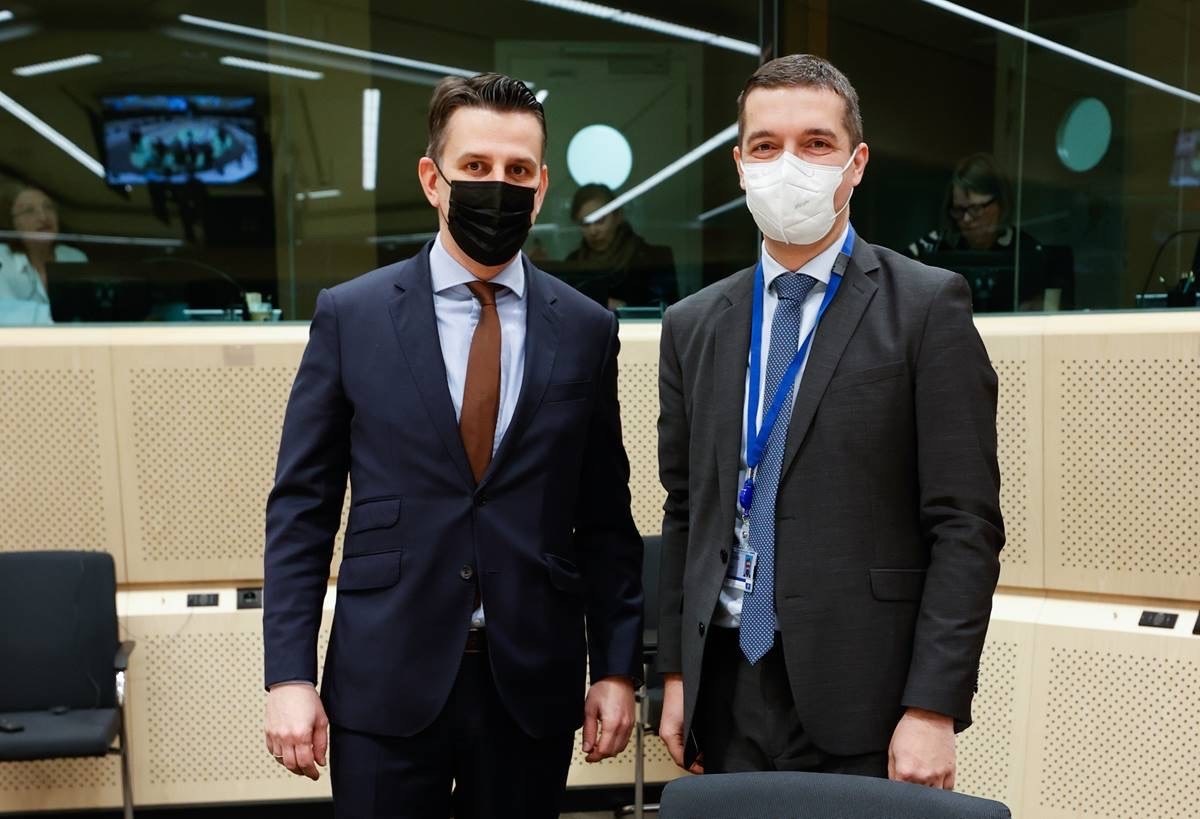
Ministers agreed that minimising the risk of deforestation and forest degradation is a key priority. At the same time they also expressed concerns about the possible impact on implementation. In general, Member States recalled the importance of subsidiarity and simplification during the debate.
Regarding the revision of EU's promotion policy, 18 Member States rejected the possible modification of the scheme, that would exclude certain products - red meat and wine - from possible support. Zsolt Feldman clearly stated that consuming red meat and wine are part of our European cultural and gastronomic heritage, which should rather be supported and further promoted, than abolished.
Further topics included fair income for farmers, severe drought situation in Portugal and Spain, labelling of free range eggs, commercial keeping and sales of dogs and the changes in the phytosanitary system of the EU.
General Affairs Council, 22 February 2022, Brussels
At the General Affairs Council meeting on 22 February 2022, Hungary was represented by State Secretary Oszkár Ökrös. The Council was chaired by Clément Beaune, French Secretary of State for EU Affairs, and the Commission was represented by Vice-Presidents Dubravka Šuica, Věra Jourová and Maroš Šefčovič, and Commissioner Didier Reynders.
Preparation of the European Council on 24-25 March 2022
The General Affairs Council held an exchange of views about the preparation of the upcoming European Council meeting on 24-25 March 2022 based on the Annotated Draft Agenda. The Ministers focused the discussion on the external relations, especially the latest developments of the RU-UA crisis, the security and defence, the Covid-19 pandemic, the European Semester, and energy prices.
Conference on the Future of Europe
At the General Affairs Council meeting on 22 February 2022, the ministers held an exchange of views on the last steps of the Conference on the Future of Europe (https://futureu.europa.eu/?locale=en). The French Presidency and the ministers emphasized that the citizens must remain at the heart of the process, that the final document of the Conference and the conclusions included therein should be drawn up in the light of their recommendations. It was emphasized that the process should be based on the principles of transparency and inclusiveness. The closing event of the Conference will take place on 9 May 2022, on Europe Day.
Enhancement of preparedness, response capability and resilience to future crises
Ministers held an orientation debate on the enhancement of preparedness, response capability and resilience to future crises. Member States unanimously underlined that the European Union must be prepared to face crises of various nature in the future, and that the early identification of emerging crises need to be improved in order to enhance the Union’s preparedness for crises.
Rule of law in Poland
The Council held a hearing on the rule of law in Poland in the procedure under Article 7 (1) TEU. The hearing, conducted pursuant to the standard modalities approved by the Council in 2019, covered the topics set out in the European Commission's reasoned proposal that had triggered the procedure.
EU-UK relations
The Council was briefed by the Commission on the state of play in EU-UK relations. Vice President Šefčovič reported on the meeting of the Joint Committee held on 21 February, which discussed issues related to the implementation and application of the Withdrawal Agreement, with a special focus on citizens’ rights and the Protocol on Ireland/Northern Ireland.
The protection of journalists in the EU
Commemorating the fourth anniversary of the deaths of investigative journalist Ján Kuciak and his fiancée, Slovakia requested a discussion on the situation of journalists in the EU and submitted further proposals on their protection.
Extraordinary Justice and Home Affairs Council, 27 February 2022
The extraordinary meeting of the Ministers of the Interior was organised by the French Presidency in Brussels on 27 February 2022, at which Hungary was represented by Minister of the Interior Sándor Pintér.

The Member States and the EU institutions have assessed the deteriorating situation following the Russian-Ukrainian conflict and had an overview of the tasks in the field of home affairs, in particular regarding the topics of humanitarian assistance, asylum, external border protection and internal security. Ministers assured Ukraine and the Member States, most affected by the crisis, of their continued solidarity.
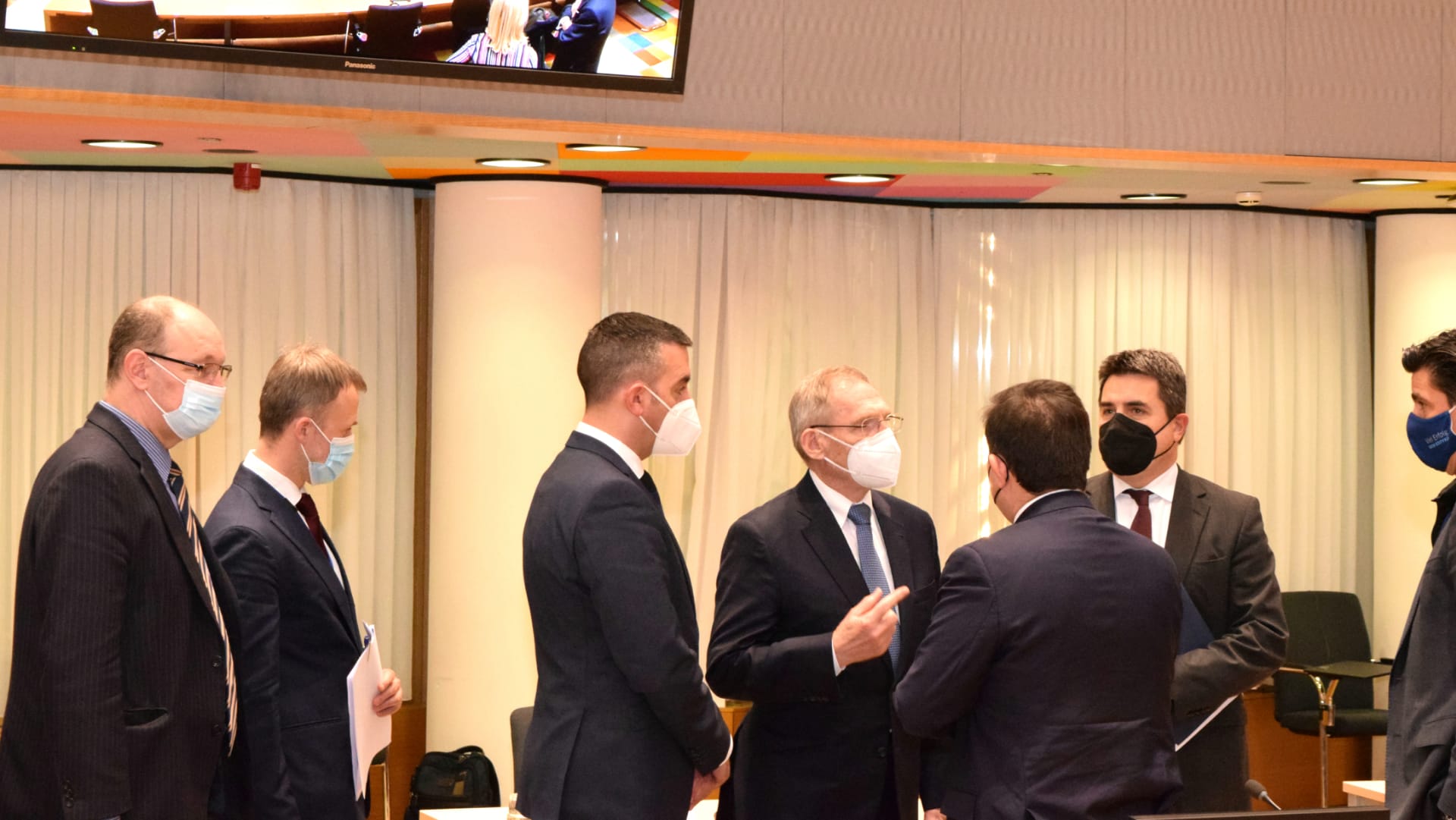
In his speech, Sándor Pintér stated that Hungary is also following with great concern the events taking place in our immediate neighbourhood. He highlighted that Hungary will ensure the entry of asylum seekers and the reception of asylum applications while carrying out the necessary checks. He also stressed no fleeing Ukrainian citizen should be put in a more disadvantageous position than any other person coming from a distant country, without documents. Border crossing points at the Ukrainian border section are operating at full capacity. Hungary is well prepared for the crisis. Due to the measures taken in advance, no significant congestion has occurred, either at the border or at the collection points. As a sign of our solidarity, we will continue to deliver humanitarian aid to Ukraine and, in particular, to Transcarpathia. He emphasized that the European Union should look into the possibility of providing emergency financial support for Ukraine and the Member States directly affected by the refugee wave.
Extraordinary Energy Council, 28 February 2022, Brussels
Organized by the French Presidency of the Council of the European Union, an extraordinary meeting of energy ministers was held in Brussels on 28 February 2022, at which Hungary was represented by Secretary of State Attila Steiner.
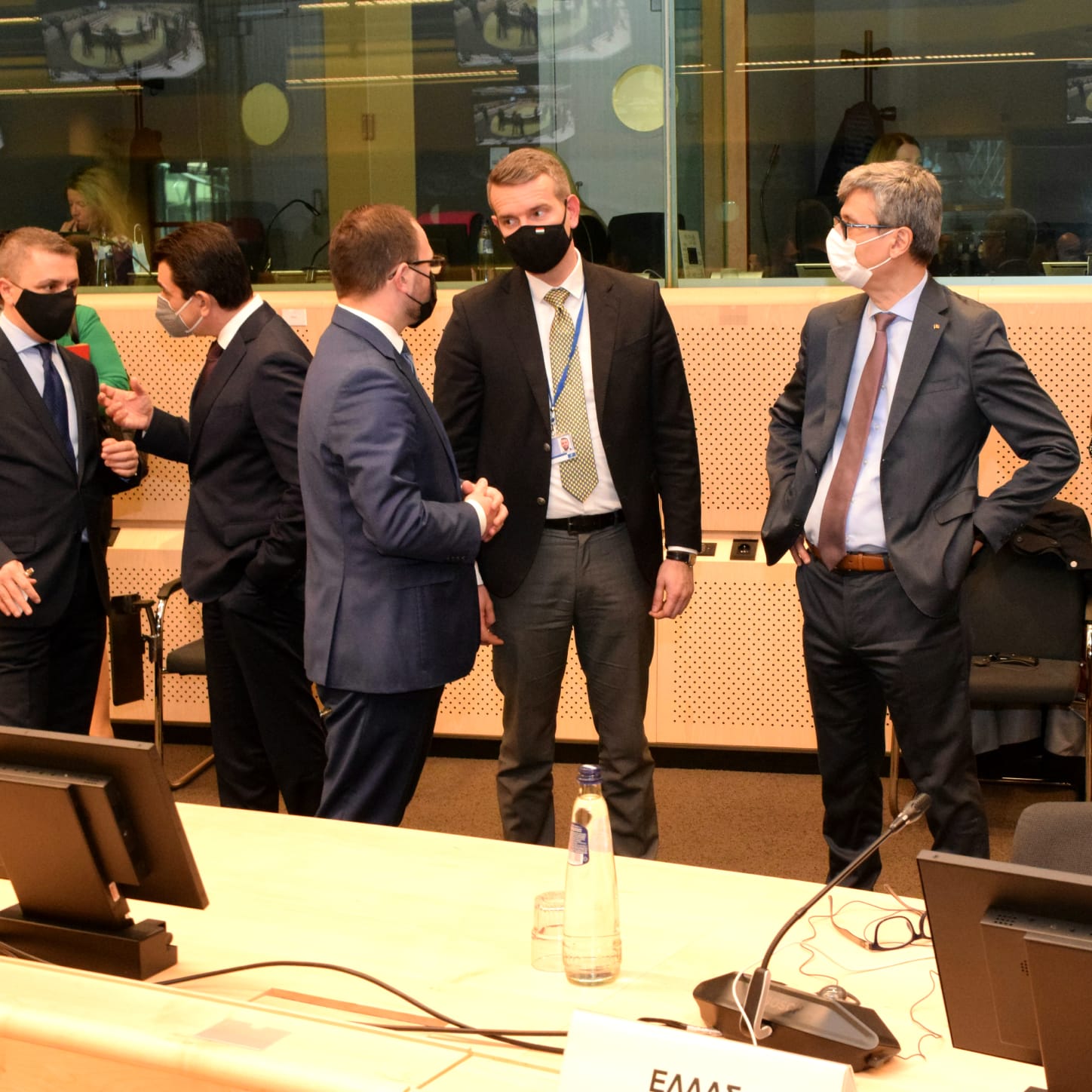
The ministers have reviewed the current levels and expected evolution of energy prices, the high oil prices and possible common responses, the new contingency and emergency plans, and alternatives for responding the Ukrainian requests for support, including the synchronization of the Ukrainian and European electricity grids.
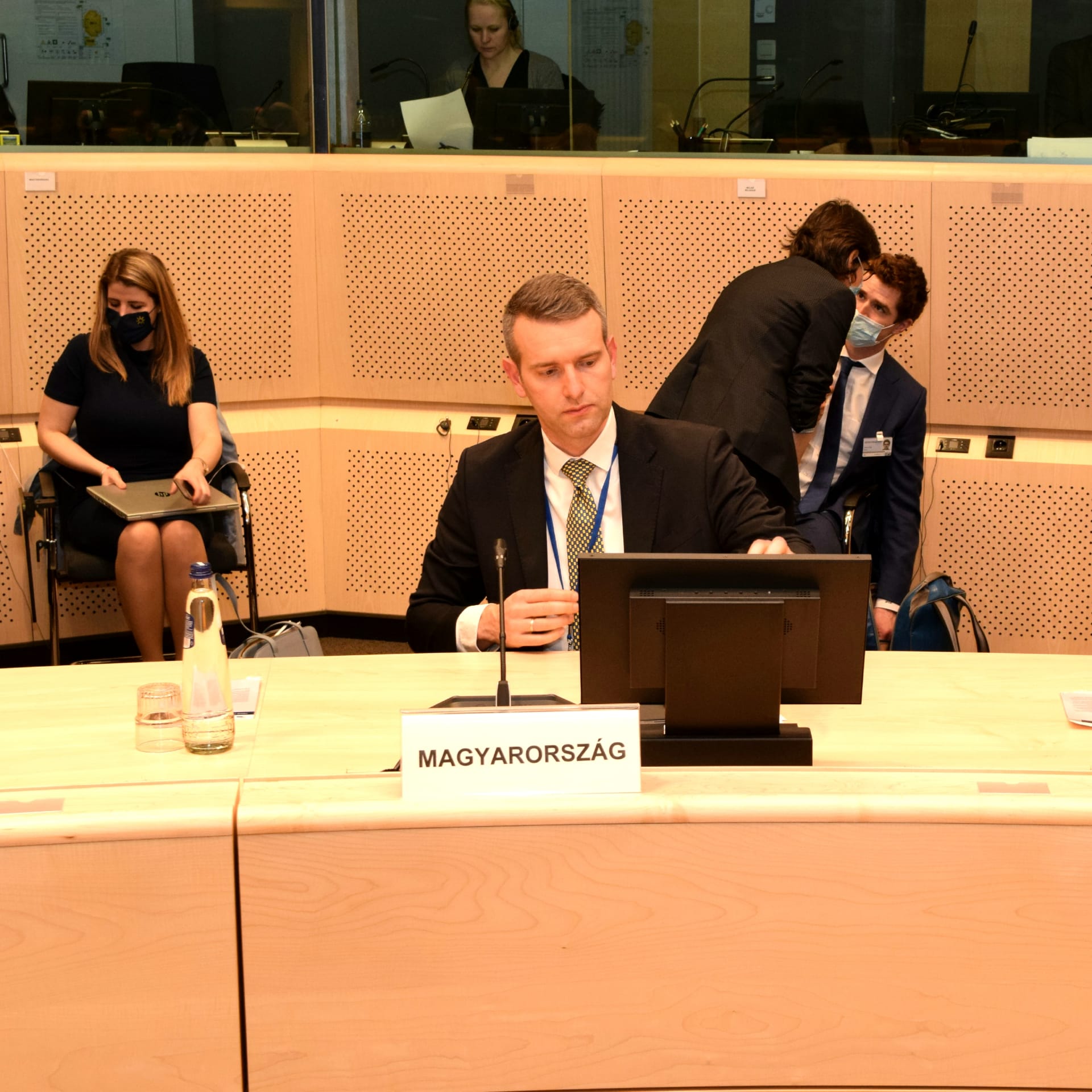
Secretary of State Attila Steiner expressed concern over the war in our neighborhood. He said that despite the situation, Hungary's energy supply is secure, there is enough natural gas in the natural gas storage facilities for the winter period, and the emergency oil reserves are also sufficient for 99 days. He stated his support for an EU level coordinated assistance towards Ukraine. Hungary has so far supplied 100,000 liters of fuel to Ukraine. The Secretary of State also said that Hungary shares the Commission's and others countries concerns over the high energy prices. Ensuring affordable energy prices and preparing for the next winter season are the most important tasks. With regard to the synchronization with Ukraine, he emphasized that Hungary understands Ukraine's political need for accession, but before making any decision, ENTSO-E should carry out a detailed study of the possible network effects.
Let us preserve Hungary’s peace and security
Let us preserve Hungary’s peace and security, Prime Minister Viktor Orbán said in a video statement released on Tuesday.
There is a war in our immediate neighbourhood, Mr Orbán said in the video posted on his Facebook account this afternoon. He added that we must rise to the challenge threatening our security with determination and in unity as we did during the coronavirus pandemic and the ensuing economic crisis.
The Prime Minister stressed that today we are stronger than before, and together with our allies we are able to preserve our security. He added that the Hungarian economy, too, must be protected, we must curb the rise in energy prices. “We Hungarians shouldn’t be made to pay the price of the war,” he stressed.
He took the view that from our history “we know only too well” the consequences of war, and therefore, we cannot be dragged into this armed conflict.
We must be left out of this war, he pointed out. At the same time, we must help the Hungarians and Ukrainians who are fleeing the war, leaving their homes behind.
The Prime Minister said thank you for the fact that in the past few days “the country has moved as one” and has helped the people who are in trouble.
The full video with English subtitles can be watched below:
source: primeminister.hu
Home Affairs day of the Justice and Home Affairs Council, March 2022, Brussels
The Home Affairs day of the Justice and Home Affairs Council, organised by the French Presidency, took place on 3 March 2022 in Brussels, where Hungary was represented by State Secretary Tibor Pogácsás.
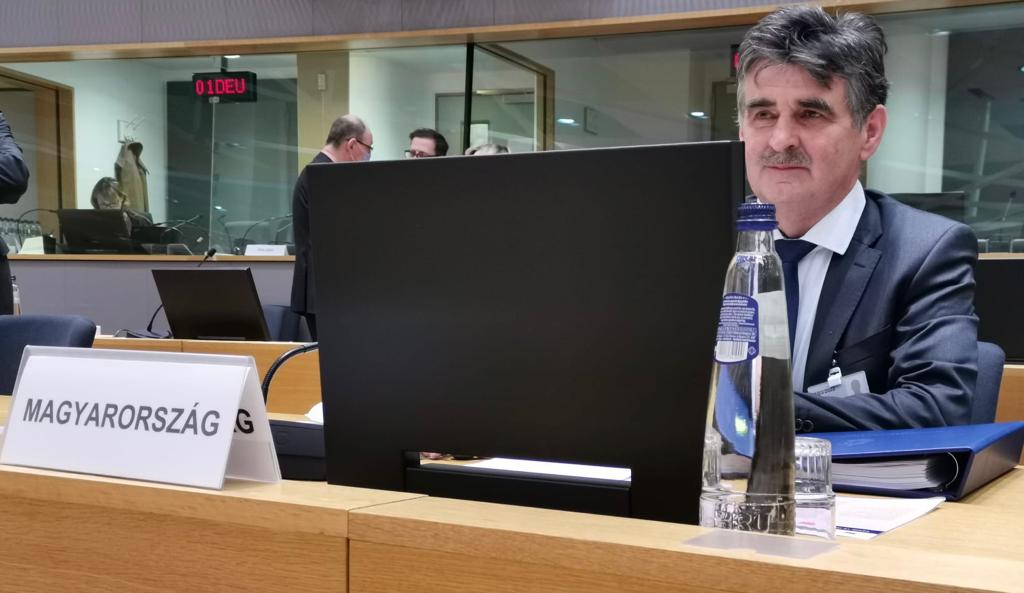
The Ministers of the Interior exchanged views on the overall situation in the Schengen area and confirmed that there is a greater need for better coordination of the political governance of the Schengen area with the operational level. Ministers agreed that the proper functioning of the Schengen area is of crucial importance for the European Union as a whole. They also agreed on a general approach on the proposal amending the Regulation on the Schengen evaluation mechanism. During the working lunch they discussed with their counterparts from the member states of the Latin American Committee on Homeland Security (CLASI) issues of common relevance in the fight against drug trafficking and organised crime. With regards to the situation in Ukraine, the ministers decided to activate the Temporary Protection Directive for the first time since its entry into force in 2001. Finally, a policy debate was held on the French presidency's proposed step-by-step approach to migration.
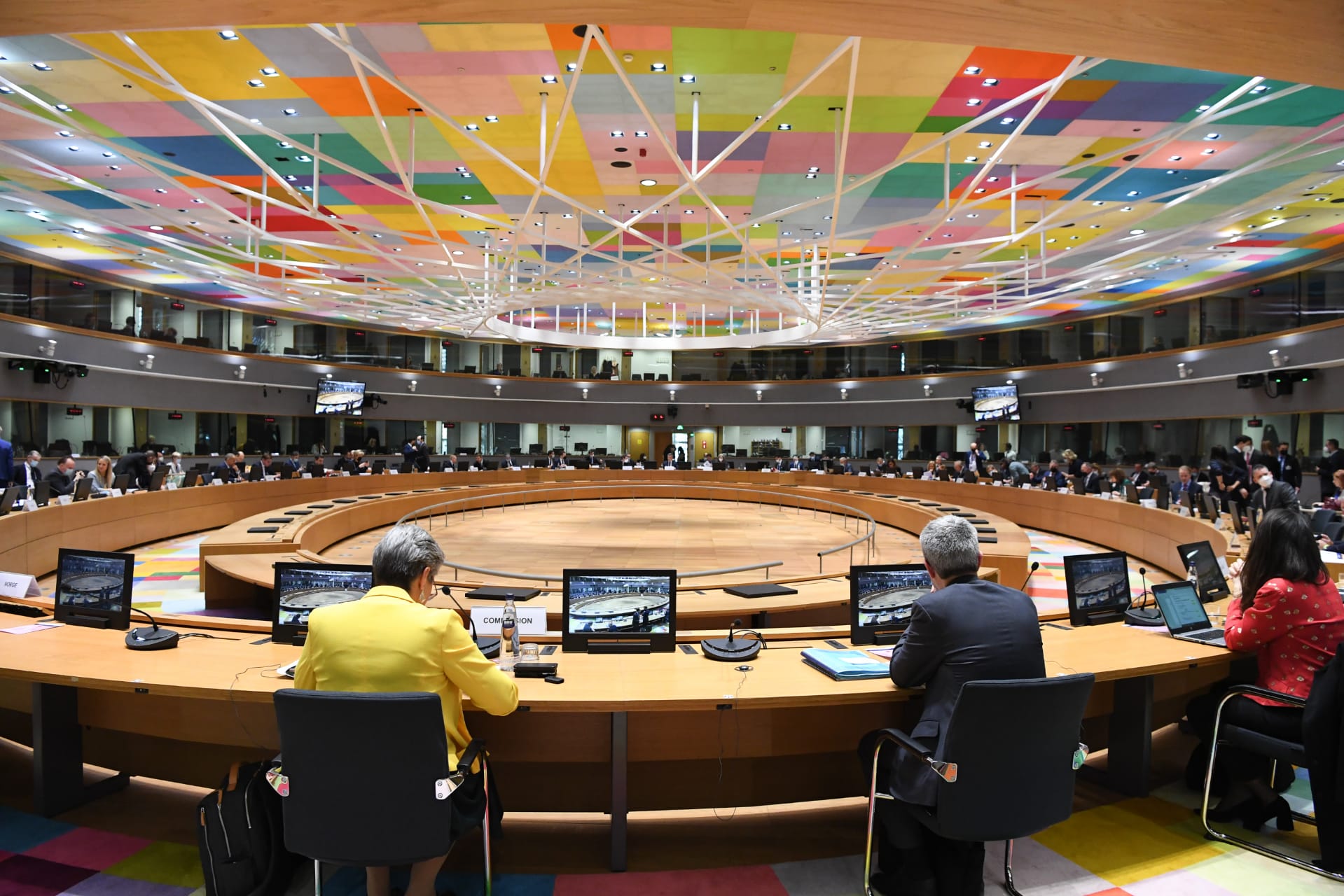
In his intervention State Secretary Tibor Pogácsás highlighted that Hungary maintains its position on the issue of illegal migration, stressing that border protection measures effectively applied at Hungary's southern borders to prevent mass inflows, or the threat of such inflows should be recognised as an instrument of solidarity of equal standing, as they protect the integrity of the Schengen area and ensure the internal security of all EU Member States. He added that the proper functioning of the Schengen area is one of Hungary's priorities, and accordingly we support the French Presidency's ambition to give the Council a prominent role in the political governance of the Schengen area. In the context of the crisis in Ukraine, he stressed that Hungary is well prepared to receive and care for refugees fleeing the conflict, and therefore already recognises Ukrainian citizens arriving from Ukraine and third-country nationals legally residing in Ukraine as beneficiaries of temporary protection under national law.
Statement by Vice-President Margaritis Schinas in Beregsurány, on the Ukrainian-Hungarian border
Hungary and the European Union as a whole are facing a situation which is not the case in our recent history.
We must give an extraordinary response to the exceptional situation, whether it is the severity of our sanctions against Russia or the incompatibility and strength of European unity.
Today I came to the Hungarian border to witness this unwavering unity — we are with Hungary and the Hungarian people who generously opened the gates and welcomed those who fled from the horrors of the war in Ukraine with open arms.
Yesterday, all 27 EU ministers unanimously approved the Commission’s proposal that all those who flee the conflict and cannot return to their homes in the European Union should be granted general protection status.
In this, the EU follows the example of Hungary — Hungary, which has already granted this status to thousands of people who arrived on its territory during the last week.
The decision also makes it clear that Hungary is not left behind in the fight and that we will all bear the burden together.
It is shocked and deeply devastated by what is happening in our neighbour, the Ukrainian sister state, while at the same time I am proud and impressed that the Union has been able to demonstrate unity in the face of Russian aggression.
It is amazing to see that hundreds of Hungarian officials, civilians and citizens are present here, at the border and at the Budapest railway stations, to help those coming from Ukraine.
You will be the glory of your country and of Europe as a whole!
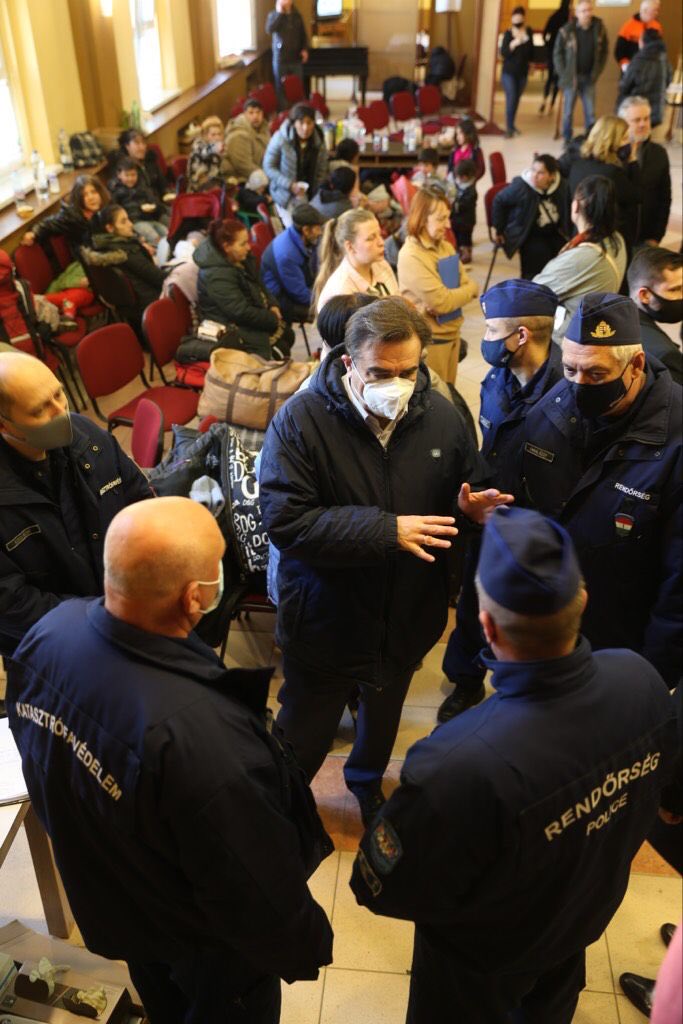
photo: https://twitter.com/MargSchinas
source: EC Representation in Hungary

